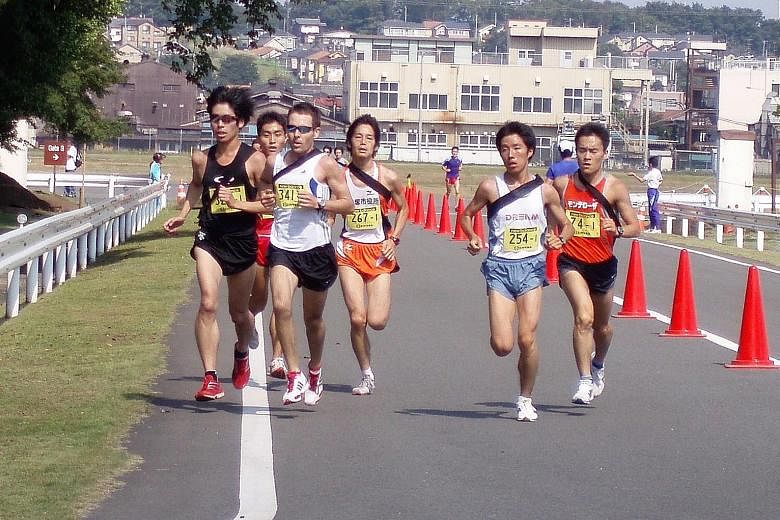One week after my final university paper, I arrived in Tokyo, excited to find out what the world had in store for me. Joining other employees in the concrete jungle did not appeal to me and I decided, in cliched fashion, to follow my passion.
I spent six years in Japan working in the booming sports industry while working on my own running. I was in my 20s and I wanted to know how fast I could go.
Another foreigner living in my neighbourhood started a blog, Japan Running News, which recently marked its 10th anniversary of publishing and translating running news in Japan for fans all over the world.
With this in mind, I would like to share some of my own racing experiences in Japan. Since moving to Singapore, I have brought small contingents and returned to the same races where these athletes have subsequently set personal and national records.
My journey to the 2008 Fukuoka International Marathon Championship started 13 months earlier in a small Saitama town called Ageo. A former professional athlete told me about this relatively unknown race not far out of Tokyo that was known for its crazy pace.
Always held in November, the Ageo City Half Marathon attracts many university students who are shaping up for the winter ekiden (road relay) season.

A fellow runner and I made our way to the start line and settled in, a good 15-20 rows away from the front. I ran a personal best of 1hr 7min and yet I barely scraped into the top 300.
Later on, I wanted a 5,000m race to sink my teeth into before my training went marathon-specific. There are several universities in the Kanto region that host official "time trials" regularly. Once a month, the Japan Sports Science University holds a weekend of middle-and long-distance events, reserving Sunday primarily for 5,000m heats.
You simply register a month in advance with your season's best time and the organisers slot you into the appropriate heat, each progressively faster, with the last often world class.
My run, something like heat 21 of 25, was scheduled for the evening. Most of the heats accommodate 30-40 runners and they proceeded surprisingly smoothly despite the logistics involved. Every athlete in my heat was looking to run about the same time I was targeting so it was easy to be swept along to a new personal best for the distance.
We ran single file for most of the race, never more than two abreast and I moved up the field as soon as I sensed the runner in front of me was starting to falter. Fast had never felt easier.
A few other races would serve as stepping stones for the Fukuoka Marathon, which is coincidentally always held on the same day as the Standard Chartered Singapore Marathon in December.
As I had not run a marathon the previous winter, I did not have a qualifying time for the prestigious Fukuoka event. But my time in the Ageo City Half Marathon got me into the "B" category.
The afternoon before the marathon I picked up my race number and other details, and saw the biggest stars of my sport chatting among each other.
Like my 5,000m time trial three months earlier, it was easy to run fast because I was surrounded by so many runners of similar ability - unfortunately a rarity, even at the top end of races in Singapore. The Fukuoka field is relatively small for a major marathon, yet the course is lined with spectators the entire distance.
These are respectful fans who take the time to look up your name in the morning papers, which publish the entire start list so the public can urge you along with words of encouragement.
I ran another personal best that day but wasn't truly satisfied because we always like to think our best race lies in the future.
All I could promise myself that day was to return to Fukuoka, only this time with an A grade qualifier. Once upon a time, there wasn't a B category and I would like to earn my spot like many of my Kiwi childhood heroes did. I'm no longer in my 20s and reaching my late 30s. Time is running out but I am not ready to give up.
- Jason Lawrence is a RunONE coach, longtime adviser and training partner to one of Singapore's top marathoners, Mok Ying Ren.

